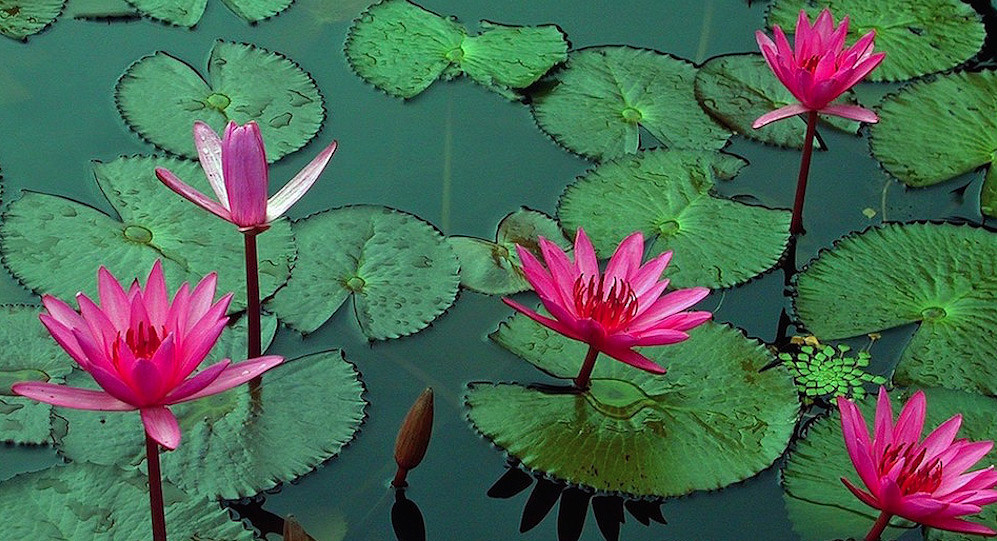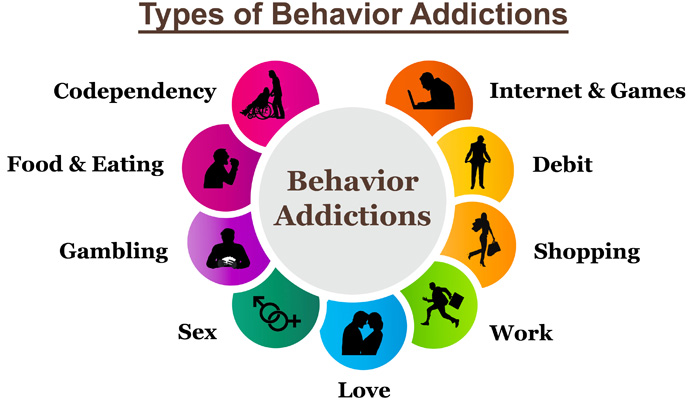Sugar … as Sweetness … as the Lord
What is it, really, that we all seek in life? Ultimately, isn’t it happiness, joy, bliss … unending.
When we experience moments or events which bring us this happiness, how do we describe them?
Better yet, how do we describe those who are responsible for the joy that is brought into our lives?
Don’t we spontaneously call them, “Honey” or “Sugar” or “Sweetie Pie“?
It is the sweetness in life that actually brings many of us back here for yet another reincarnation of our soul. We simply haven’t gotten enough of whatever form of life’s sweetness it is that we crave or desire.
For some it may be the simple yearning to experience “Sweet Jesus“. For others, especially in the the Eastern spiritual traditions, it might be the opportunity to enjoy the mystical and sweet rasalila with Lord Krishna Himself. In the Sufi tradition, there are the exquisitely sweet poems of Rumi, as well as the sweetness of the Sema as experienced by the whirling dervishes, which enrapture the soul. The following rendition of Khwaja Mere Khwaja is a wonderfully sweet fusion of poetry and song, dance and music which reflects these sentiments in a truly transcendental fashion.
Of course, what is the very essence of sweetness but love itself, which is why it is so satisfying and alluring. It is also the very basis of our existence and what all of us crave to the greatest degree. However, we often mistake the sweetness of our chosen sugar for the sweetness of true (and unalloyed) love. This is where it behooves us to consult the more ancient wisdom of the East.
In India the science of Ayurveda (literally the knowledge of life) is known as the mother of all healing arts. According to this highly respected body of wisdom it is understood that sweet – one of the six major tastes – is clearly the predominant one, not only in the great number and diversity of foods that exist around the world, but also the one that ought to be eaten in the greatest proportion by those who seek balance among their doshas*. So even in our food, an earthly form which the Lord Himself has assumed, we instinctively are drawn to its many sweet varieties. We unconsciously seek the divine in the very food we eat because we know it was created by God, from His very own body – the created universe.
*dosha (per to dictionary.com)
| Main Entry: | dosha |
| Part of Speech: | noun |
| Definition: | in Ayurvedic medicine, one of the three biological humors or energies (kapha, pitta,vata) which combine in various proportions to determine individual constitution and mental and physical disorders |
| Etymology: | Sanskrit ’fault, disease’ |
This is where this health coaching session gets very interesting.
You see, wherever we seek sweetness in our life, we are truly seeking the Lord. The Lord is the sweetest of ALL sweets. And His many sweet creations are but different manifestations of His pure sweetness. Though many of these physical sweets may not look, or smell, or taste, or feel like the Lord as you would think, they are no less than the Lord Himself. After all, they were made from His supreme consciousness and by His supreme energy. In other words, He not only owns the bakery, supplies the flour and the sugar, as well as the bakers; the Lord is the entire bakery, and all of its delectable baked goods.
What’s the point here? As we all go through our lives seeking out and yearning for the multifarious forms of sweetness in this earth realm, we are actually in hot pursuit of the Lord Himself. Inevitably, we will attain this highest spiritual goal and achieve the very purpose of human existence, but only after countless lifetimes of getting sick from too much chocolate cake, or whatever “sweets” we overindulge in.
The real challenge here, after recognizing that it has been the sweetness of the Lord of which our soul has been in avid pursuit, is to re-channel much of the energy we expend in the pursuit of sweets, athletics, career, money, fame, fortune, cars, houses, clothes, artwork, sex, relationships, romance, reading, comfort food, beer, wine, brandy, cigarettes, marijuana, coffee, tea, cappuccino, expresso, Coca-Cola, Pepsi, Dr. Pepper, recreational drugs, pharmaceutical drugs, nutraceutical drugs, TV, computers, wi-fi’s, iPhones/Androids/Blackberries, cellphones, talking, debating, arguing, social networking, conversation, sympathy, attention, notoriety, meat and potatoes, surf and turf, key lime pie, pistachio ice cream, chocolate cake, barbecue ribs, chicken wings, hush puppies, Italian food, Mexican food, Thai food, drumming, piano, violin, flute, guitar, fishing, sailing, motor-boating, beaching, gambling, cards, horse racing, car racing, football, baseball, basketball, soccer, marathon running, tennis, skiing, biking, power walking, working out, surfing, mountain climbing, skydiving ….
Did you know that it is actually the concentrated sugars (sweetness) in liquor which is craved by one who is addicted to alcohol? When one gives up alcoholic beverages for good, he/she often segues over to a variety of very sweet foods to fill the very same void. Truly, it is the hunger for God that is wanting to be satisfied. All appetites lead to the Godhead when traced back to their ultimate source, and followed to their final destination.
By the way, it is very important to point out that there is nothing inherently wrong with any of the aforementioned foods, endeavors or objects of desire. They are all a part of God’s creation. All of them have their rightful place in life and society, and may be perfectly appropriate for an individual given the worldly pursuits that makes him or her happy. Destiny also brings what destiny will bring, all for the unfoldment of the soul’s desires which ultimately do bring us closer and closer to God.
It’s all about moderation, and temperance, and balance, and sobriety.
Especially in these times, our chosen sugar or sweetness in life often becomes the instantaneous comfort which quickly takes the sting out of life’s pain and suffering. However, if we can only remember that, just like pharmaceutical medications, most forms of sweetness taken in excess only serve to medicate, desensitize, distract, palliate, anesthetize, disguise, numb, or mask the true source of our pain*.
*It is said in some Eastern spiritual traditions that all pain reflects, to varying degrees, the most profound and primordial pain of separation from the Lord. Also, that such pain will cease only when a permanent reunion with our true Beloved is attained through Self- realization. Likewise, there are those schools of healing which acknowledge that all dis-ease ultimately derives from one’s disconnection from God. And that the closer we get to the Godhead, the more likely we are to lead a pure and wholesome life; then robust health and lasting wellness come naturally.
Trials and tribulations, no matter what form they take, always serve our highest good. Therefore it is best to face them consciously and with maximum sobriety. Anything that treats our symptoms usually, in some way or another, rips off our shakti (spiritual energy according to Ayurveda), and lessens the degree to which we will be present in any given moment. Particularly during those experiences that are meant to be spiritually enlightening or edifying, we do well to “self-medicate” only to the extent that is really necessary. The practice of such forbearance is in and of itself a great virtue, which will take us even further in our sadhana (Ayurvedic spiritual practice).
Bear in mind that the continuum from spartan stoicism to wanton overindulgence is quite long. And, that our proper place on this continuum is one which each person must decide for him or herself. Since this continuum is often changing, our ability to discern becomes critical, as this is where the breakdown usually occurs. Therefore, the virtue of self control ought to be ceaselessly cultivated.
For instance a regular, long daily run during a period of great emotional turmoil can have great therapeutic value, as long as the run serves to discharge the negative emotions in a healthy manner. When the run becomes so addictive that the endorphin high overrides one’s judgement about when to stop, the therapy can then become counter-productive, and in some cases more destructive than the original dis-ease.
Viveka (the power of discrimination in Ayurveda) is the faculty which reigns supreme during our trek throughout the bakery of this world. The sharper it cuts through the baked goods of our life, so that we eat only what is truly necessary, the better we will feel, the stronger will be our resolution, and the more likely we will reach the goal of our spiritual journey.
In Closing:
You may have already guessed that the author of this little essay is a recovering sugarholic. His addiction to sweets (especially all things sugar) inexorably pushed him into his life’s work as holistic health coach/wellness counselor/integrative health consultant.
His lifelong contemplation of this matter inspired him to write and speak on the subject of sugar, and especially on the notion of sweetness as it relates to both physical and spiritual health. He has suffered greatly from numerous medical ailments and various health conditions directly related to the over-consumption of sugar. And, it was the pain and suffering associated with these illnesses and the resulting state of general dis-ease that brought him face to face with his Higher Self, which quite fortuitously put him on his long sought after spiritual path.
May you enjoy great health!
The Health Coach
Coach Note:
This may be one of the most important holistic health coaching sessions you’ll ever read. Here’s why:
In Ayurveda, addictions are known to underlie some of the most intractable, difficult and deeply embedded negative samkaras[1]. Therefore, it’s highly advisable that we do our very best to eradicate them from our being on every level in our current lifetime. Doing so will liberate us in so many ways, and especially free us to be what we came here to be.
“Overcoming Our Addictions” is well worth reading for some ideas about how to do just that.
Endnotes:
[1] Samskara (Sanskrit: “patterned or conditioned behaviors; subconscious tendencies; worldly life; impression.”) — 1. The imprints left on the subconscious mind by experience (from this or previous lives), which then color all of life, one’s nature, responses, states of mind, etc. (Per Vedic Knowledge Online)
Health Disclaimer:
All content found at The Health Coach is for information purposes only. Therefore, the information on this website is not a substitute for professional medical care and should not be construed as either medical diagnosis or treatment. All information contained herein ought to be considered within the context of an individual’s overall health status and prescribed treatment plan.
Since The Health Coach does not diagnose, treat, mitigate, cure, or heal any type of disease or medical condition, the information contained at this website is not intended to provide specific physical, mental, emotional or psychological health advice.
It is entirely the reader’s decision to act or not act on any information at The Health Coach. Therefore, we fully invoke the HOLD HARMLESS clause for those who are responsible for putting any of this information into practical use and application.
© 2012 The Health Coach
Permission is granted to post this health blog as long as it is linked back to the following url: https://thehealthcoach1.com/?p=15





Pingback: Smartphones: Overuse Causing New Health Crises - Waking Times : Waking Times
Pingback: Overcoming Addictions Can Be A Stairway To Heaven | Radiant Living